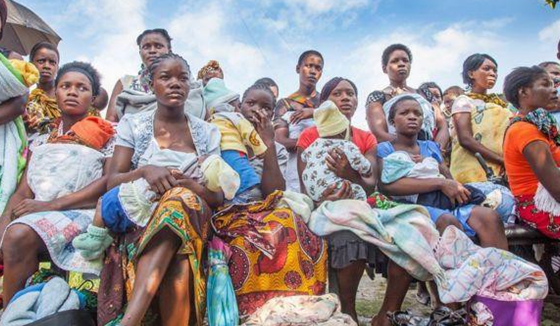PROFOH commends virtual doctors for helping patients in Zambia
The idea of virtual doctors started with Huw Jones, working in Zambia as a safari guide, was driving a Land Rover along a road in a remote part of the country. He saw a trail of blood in the road, and his first reaction was that it might have come from an animal killed by a lion. But he came across a couple on a bike – the man riding and the woman carried on the handlebars. She was pregnant and bleeding heavily and they had been cycling for hours with the aim of reaching the nearest hospital, almost 60 miles away.
The woman was in a great deal of pain and her husband seemed to be in a state of shock. Mr. Jones stopped to pick them up and drove them, but the woman was already weak and died in the back of the Land Rover before they could reach anyone who could give them medical help. It was an awful example of the lack of medical provision for rural communities in sub-Saharan Africa – and, he says, he has come across too many deaths that could have been avoided with better care.Zambia has about 1,600 doctors for a population of 14 million, and two-thirds of these are working in towns and cities, while most of the country’s population is in the countryside.It means access to good quality health care is often difficult if not impossible.When Mr Jones returned to the UK, he began to develop a project to fill some of these gaps.The virtual doctors project means that these isolated health centres can be supported by doctors thousands of miles away.Health workers and clinical officers on the ground use an app on a smartphone or tablet computer to take notes on a patient’s symptoms and photographs.
This information is sent to a volunteer doctor in the UK who helps with a diagnosis and recommends treatment.Virtual Doctors is now supporting 19 rural health centres, which typically deal with problems such as malaria, tuberculosis, HIV/Aids and pregnancy-related conditions.There are also two district hospitals taking part in the project.These local health centres have catchment areas of tens of thousands of people, and hospitals provide services for hundreds of thousands,the virtual doctors are now supporting health services for almost a million people.
The charity wants to expand further, with discussions in progress about working with other countries in sub-Saharan Africa, including Tanzania and Uganda. PROFOH has initiated a discussion with this amazing group.The Virtual Doctor system has been backed by the Zambian governmen
